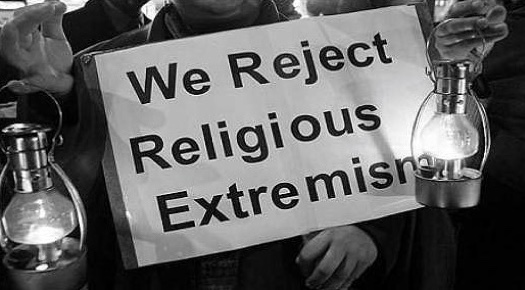
The Supreme Court in Pakistan recently granted bail to a woman who is being tried for blasphemy and has already spent three years in jail. Speaking to the media on October 16, her lawyer lauded the rare decision taken by the judiciary in a country, where blasphemy charges are a very sensitive subject. Waliaha Arfat was accused of destroying a copy of the Quran in 2012, after which she was immediately jailed in Lahore, where her trial still continues at a lower court.
“Her continuous confinement poses a serious threat to her life,” said her lawyer, Asma Jahangir, who is also a renowned human rights activist.
Jahangir said that her client had started to suffer from mood disorders and was in dire need of psychotherapy. While demanding bail, the lawyer also cited Pakistan’s penal code that states no woman can be kept in custody for over six months without a conviction. In her petition, Jahangir pleaded Arfat’s innocence, saying, as a dutiful Muslim woman, she could never even think of destroying the Quran.
Arfat was refused bail for the first time in 2012, when a trial judge said that the charges were too serious to be overlooked. She went on to appeal two more times thereafter but both pleas were rejected on similar grounds.
Despite her release, Arfat’s fiancé, Muhammad Amanullah, has expressed fears for her safety, as blasphemy is a volatile issue in Pakistan, where mere allegations are known to frequently stir mob violence and lynching.
“Some extremists had earlier tried to attack her when she was being taken to the court. Later, the court had to move her trial inside the jail,” Amanullah said.
Earlier this month, a local court in Kasur granted bail to another blasphemy accused. 40-year-old Christian labourer, Pervaiz Masih, was arrested in September this year, after his Muslim contractor accused him of making derogatory remarks against Prophet Mohammad. Masih was however granted bail on October 8. His lawyer, Tahir Gull, told the media that Masih had been treated fairly even though the charges against him are yet to be dropped.
“Masih has been granted bail by the court on merit. And we are glad that speedy justice has been served in this case,” said Gull.
Masih was booked under a section of Pakistan’s penal code that prohibits derogatory remarks against the Prophet. Upon being convicted in such a case, the accused is usually meted out with a death sentence.
“There was no evidence whatsoever against Masih that he made any derogatory remarks,” Gull said.
Gull also said that Masih had already expressed his respect for the Prophet in an affidavit submitted in court. Shamoom, Masih’s brother-in-law, said the accusations against him were false and a result of his altercation with the accuser, who refused to pay timely wages.
“Pervaiz and one fellow Muslim had a brawl with their Muslim contractor on the issue of payment of delivery of four trolleys of sand. The contractor did not make the agreed payment, resulting in heated arguments between the two sides,” Shamoon said.
Christian rights activists welcomed the court’s decision, saying such a ruling is very rare in Pakistan, where the majority Muslim population frequently accuses the religious minority of breaching blasphemy laws to settle personal scores.
Joseph Francis, national director of Center for Legal Aid and Settlement, a group that offers help to persecuted Christians in Pakistan, said the court’s decision to release Masih was a step in the right direction.
“It is, therefore, encouraging that the matter has been decided by the lower court without any fear,” he said.
However, he too warned that the fears of backlash from religious fanatics still remain.
Photo Credits: The Telegraph
